Source: SCMP (9/25/19)
China’s New Red Guards: rise of the neo-Maoists examined in briskly written book
Author Jude D. Blanchette explores the stresses within China’s Communist Party. ‘It may present itself as a united and monolithic organisation but is in fact a sackful of sects struggling for control of the narrative’
By Peter Neville-Hadley
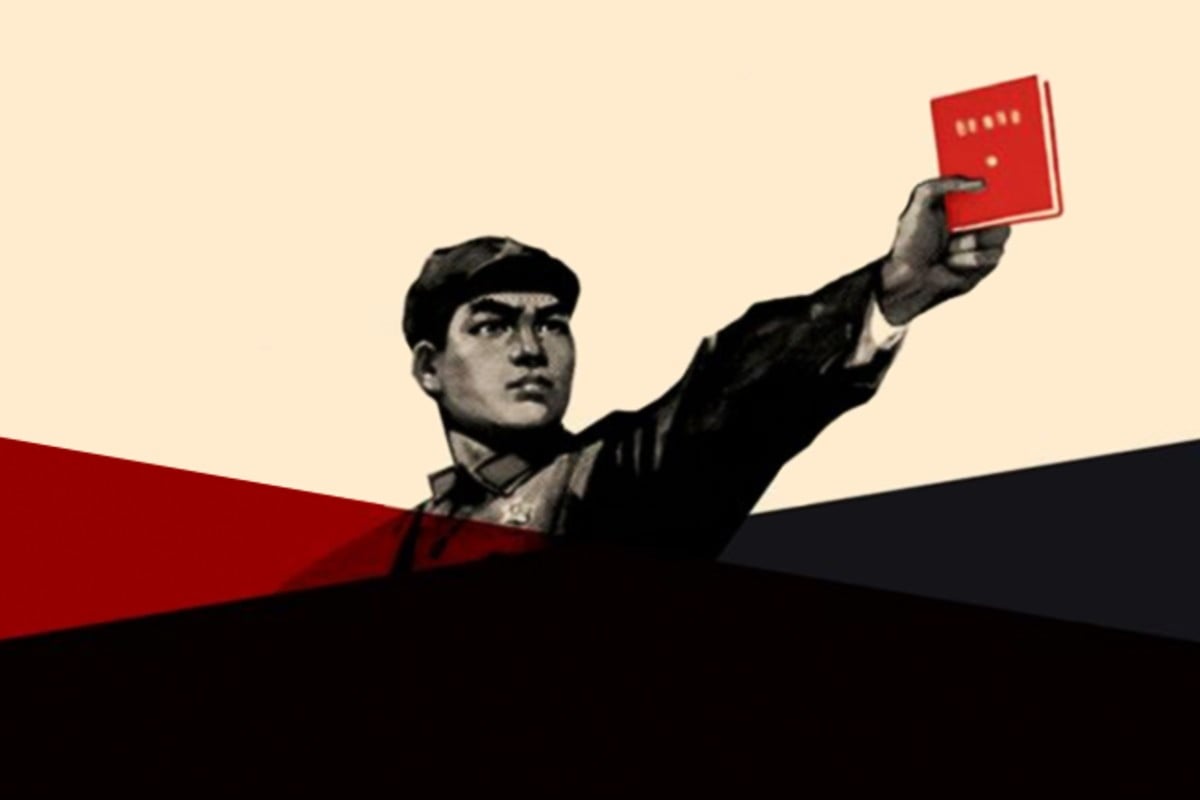
In China’s New Red Guards, author Jude D. Blanchette explores how the country continues to be shaped by Mao Zedong’s legacy.
“The mortuary of global politics is piled high with the corpses of socialist countries,” said PLA Air Force Senior Colonel Dai Xu in a 2014 pep talk to a military audience in northeast China.
A hero to the neo-Maoists, whose rise is described in Jude D. Blanchette’s China’s New Red Guards – The Return of Radicalism and the Rebirth of Mao Zedong, Dai saw shadowy forces everywhere conspiring to add Chinese socialism to the list of casualties, whether by encouraging “peaceful evolution” or taking to the streets in the then ongoing Occupy Central protests.
A China specialist at United States risk-advisory firm Crumpton Group, Blanchette has had face-to-face meetings with many of his subjects – neo-Maoists and opposing economic reformers, grass-roots activists and high-profile figures alike.
He neither takes sides nor comments on the merits of each argument, but sets out to describe the stresses within the Chinese Communist Party.
It may present itself as a united and monolithic organisation, but it is, in fact, a sackful of sects struggling for control of the narrative about the party’s supposed past miracles and the righteousness of its present policies. Blanchette recounts the history of this struggle and its consequences for the economy from the moments after Mao’s death, in 1976, to the present day.
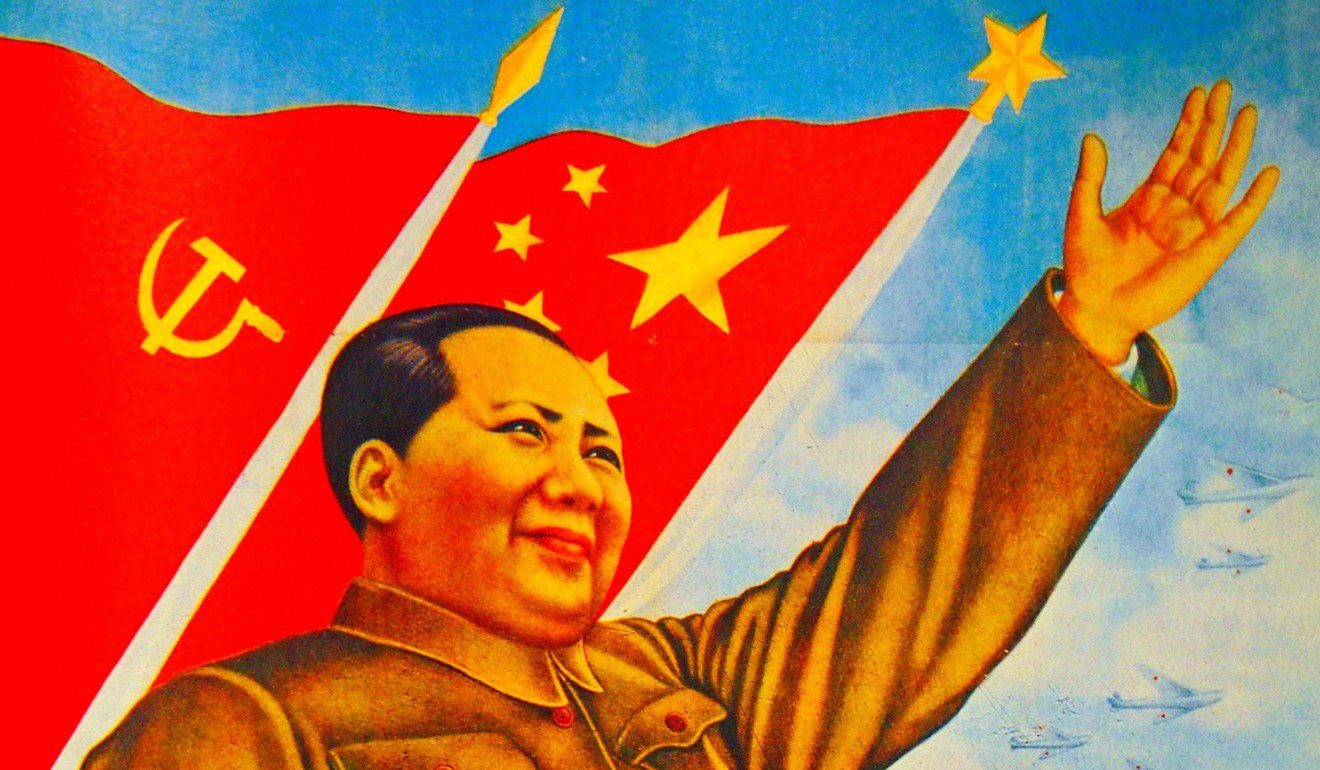
A propaganda poster from 1949. “How can you attack someone holding high the banner of Mao,” a grass-roots activist tells the author of China’s New Red Guards.
The principal divisions are between those who see delivering an improved standard of living as vital to the party’s continued existence, and those who desire “true” socialism. Some are retired but well-connected cadres yearning for the hardline certainties of a time when they touched the hem of Mao’s garment. Others are younger people demanding a return to some entirely imaginary ideological purity of the past.
It is the latter, now labelled “neo-Maoists”, that the party leadership sees as a greater problem than the external “shadowy forces” often conjured up to unite the masses behind some political position. Having “wrapped themselves in the mantle of Mao”, neo-Maoist critics are peculiarly hard to jail or suppress, Blanchette explains.
“‘How can you attack someone holding high the banner of Mao?’ one grass-roots activist told me. “Mao’s image and words had been an important ‘weapon of the weak’ since the onset of the reforms in the late 1970s, and it remains common at labor [sic] protests to see Mao’s image prominently displayed.”
The problem faced by Mao’s hand-picked successor, Hua Guofeng, was “how to both preserve the legend of Mao […] while simultaneously reimagining it to provide the needed ideological leeway to rebuild the nation’s economy after decades of misrule”.
At a theory conference two years after Mao’s death, a party historian made the official position on the late chairman clear.
“Our Party was led by Comrade Mao Zedong and thus our Party’s victories and defeats cannot be separated from Comrade Mao Zedong. If we squarely face historical truths, this conclusion is inescapable.”
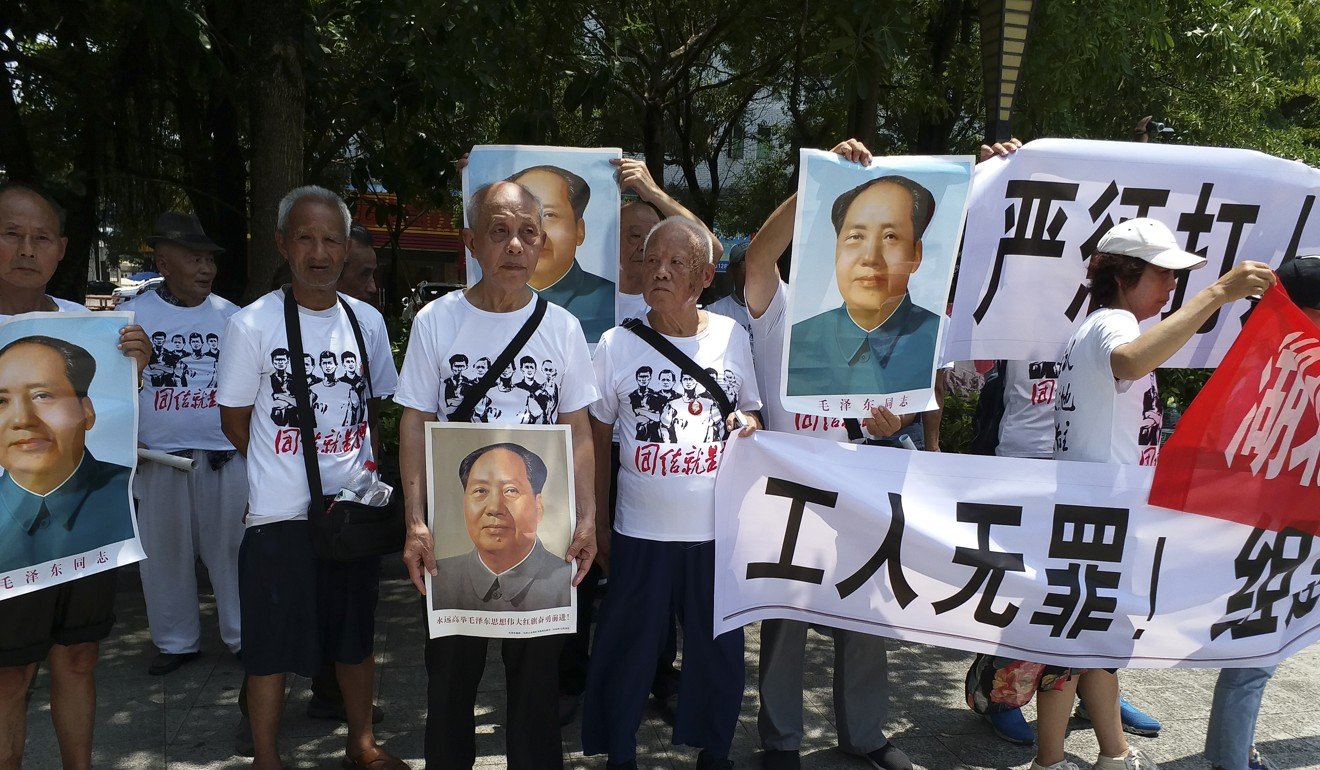
Elderly Maoists in Shenzhen, southern China, protest in support of workers at a technology factory detained in 2018 for trying to form a grass-roots trade union. Photo: Mimi Lau
But if history were in truth to be “squarely faced”, and open discussion of tens of millions of Mao-caused deaths permitted, the party’s claim to legitimacy would evaporate.
A great fudge was required. The result, two years later and after many drafts, was the publication of “The Resolution on Certain Questions in the History of Our Party Since the Founding of the PRC”.
This has remained the official evaluation of Mao ever since: Mao the man made errors, but Mao the theorist is immortal and beyond criticism. His mistakes are acknowledged, but his prestige is nevertheless protected.
The resolution concluded, “If we judge his activities as a whole, his contributions to the Chinese revolution far outweigh his mistakes. His merits are primary and his errors secondary.”
“Decades later,” says Blanchette, “it still defines what is permitted in school textbooks, what academic research on Mao can be undertaken and how Mao can be depicted in the media.”
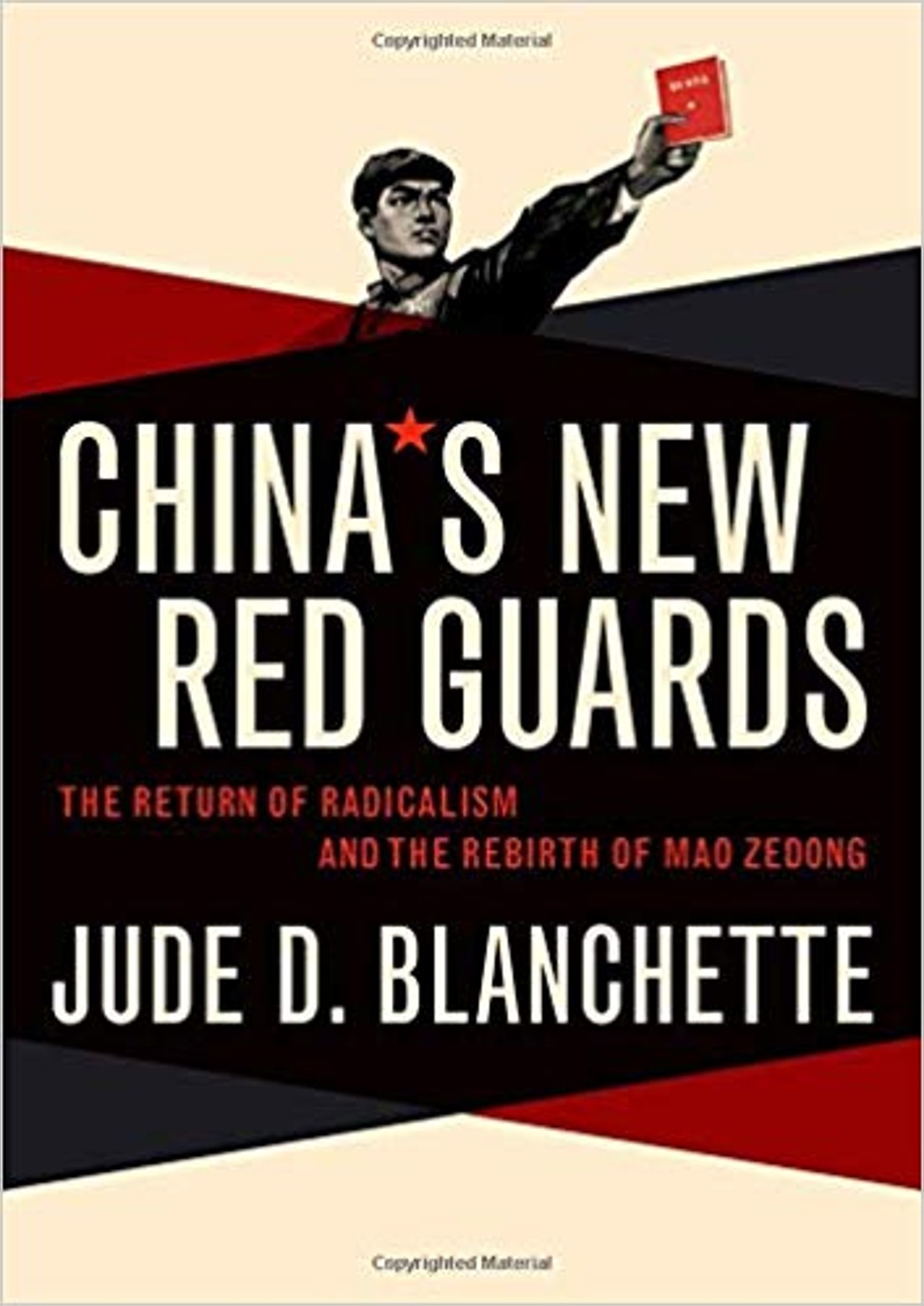
But far from silencing criticism and allowing subsequent leaders to proceed undisturbed with economic policies that would earn public support, the resolution has been used as a shield by those looking to criticise economic reforms on the grounds that the party is not being Maoist enough.
At the same time, acknowledgement of Mao’s “errors” has left the party equally vulnerable to attacks from the right. Blanchette quotes a 2017 Weibo post by Shandong Jianzhu University professor Deng Xiangchao.
“If [Mao had] died in 1945, China would have seen 6 million fewer killed in war. If he’d died in 1958, 30 million fewer would’ve starved to death. It wasn’t until 1976 when he finally died that we at last had food to eat. The only correct thing he did was to die.”
[Maoism: A Global History – how China exported revolution around the world]
The party initially claimed its legitimacy sprang from defeating Japan and exiling its domestic opponents to Taiwan. Then, particularly after 1989, from the provision of rising living standards. But as growth faltered after the 2008 financial crisis, it reverted to rewriting the past.
The neo-Maoists, Blanchette explains, view research on China’s modern history as a proxy battle for the country’s political future. “There is no such thing as neutral history, they argued, as every utterance about Mao Zedong or the party’s historical legacy had the effect, intentional or not, of either supporting or attacking the regime. All works of history were thus inherently political acts.”
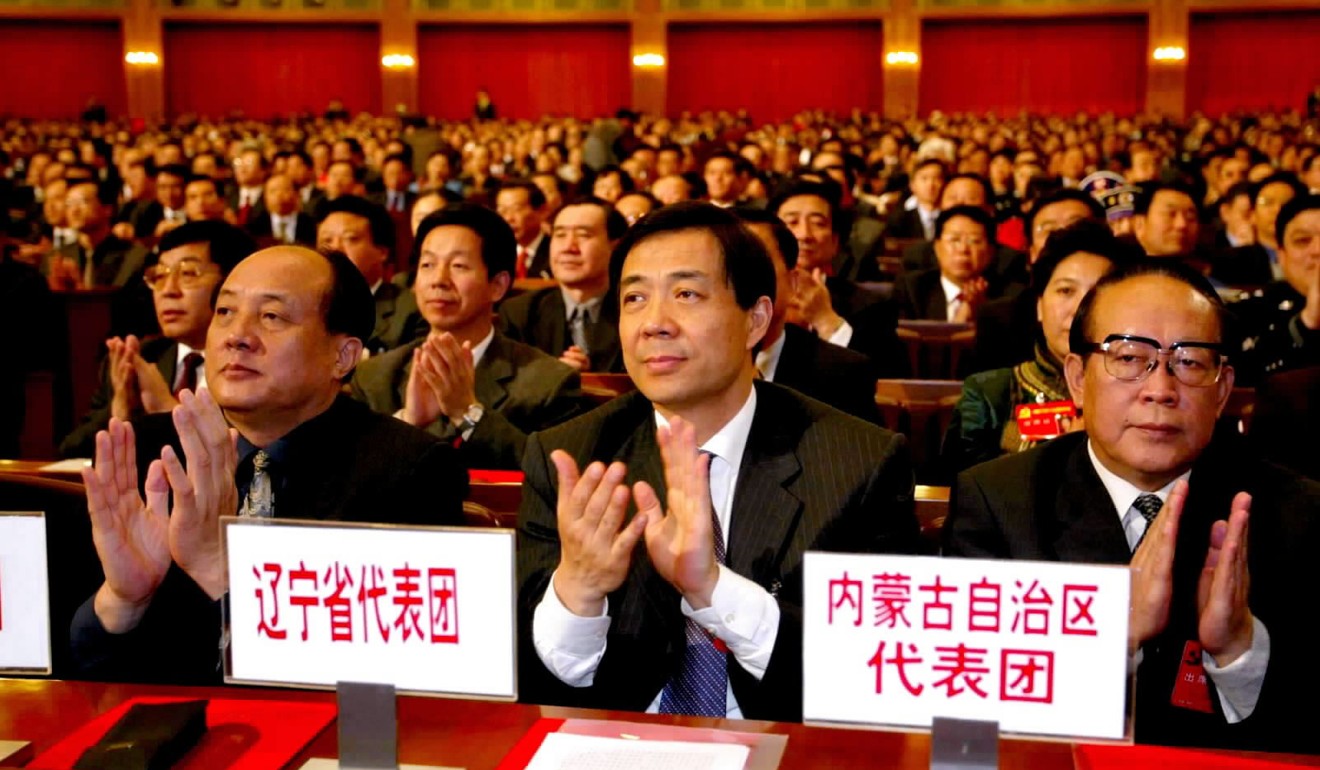
Bo Xilai (centre), when he was governor of Liaoning province, at Communist Party congress in 2002. He later became a darling of neo-Maoists as party secretary in Chongqing, southwest China, before being tried for corruption and jailed.
Targets of their wrath have included Sun Yat-sen University philosophy professor Yuan Weishi, who wrote an article criticising the unbalanced, incomplete and often completely false account of the opium wars in China’s middle-school history textbook.
Veteran Chinese journalist Yang Jisheng, who spent decades compiling research from secret party provincial archives to tot up the number of deaths from man-made famine during the Great Leap Forward, also came under attack.
Neo-Maoist propagandists set out to recalculate his figures, reducing them by nine tenths, despite even the party having long admitted to a much higher figure. And if facts and arguments sufficient to rewrite history could not be found, then laws were proposed to imprison those espousing “nihilist” history.
These were justified by reference to European Holocaust denier laws, as if outlawing false claims that millions did not die in Europe was the same as outlawing true claims that tens of millions in China did.
If Blanchette’s briskly written book seems a little repetitive at times, that’s not his fault but rather due to the lack of new ideas in the decades since Mao’s demise, and the cyclical nature of the “debate” between those wanting to buy the loyalty of the masses with gewgaws and those wanting a return to collectivisation accompanied by regular re-runs of the Cultural Revolution.
Far from the steady progress of reforms promoted in modern mythmaking, there have been frequent derailings as neo-Maoists ride popular support from the masses made redundant by the closure of non-performing state-owned enterprises.
One thing missing from Blanchette’s book is a chapter of conclusions, or any forecast for the future. Perhaps he has learned from the reliably unreliable China predictions he mentions by figures such as former US secretary of state Henry Kissinger and The New York Times correspondent Nicholas Kristof.
The former was enthralled with now disgraced Chongqing strongman and neo-Maoist darling Bo Xilai; the latter forecastthe demise of communism in China, then political easing under Xi Jinping, and the release of democracy activist Liu Xiaobo, who died in captivity in 2017.
Just as trade with the West helped the party solidify its position rather than bring it down, so, too, did the internet, strengthening neo-Maoism by spreading its ideas to a wider audience.
[The underrated influence of modern neo-Maoists on China’s Communist Party]
Perhaps the struggle between economic liberalism and Maoist centralism will continue indefinitely, and the tide will continue to go in and out. Earlier in his leadership, Xi made strong statements in support of economic reform, but China watchers are currently aflutter over the 56 instances of the terms “struggle” or “great struggle” – language little heard since the Cultural Revolution – in a speech he gave to the Central Party School on September 3.
For now the leftists are helping the leadership to suppress “nihilist” views that reveal the reality of Mao’s brutal reign. But they can hardly be happy that, as Blanchette puts it, “For all its many platitudes about upholding socialism, the CCP still has little tolerance for actual socialists.”
As it was for Deng Xiaoping in 1992, so it is for Xi in 2019: “China should maintain vigilance against the Right but primarily against the ‘Left’.”